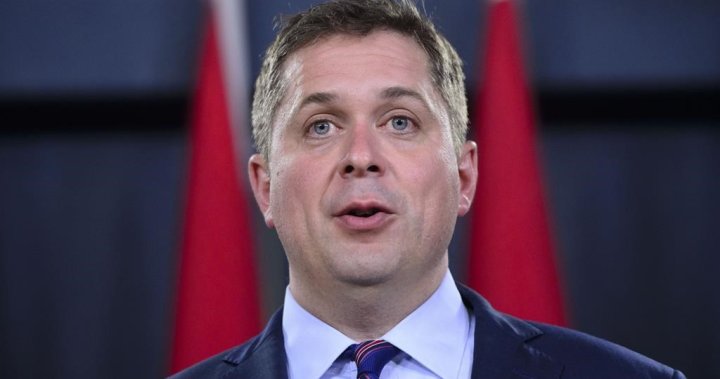Hopkins123
Senior Member
I think losing official party status is a real possibility for the NDP. The PPC gaining is also bad news for Scheer.
Lol. The "gaining" isn't even amounting to Bernier winning Beauce by the looks of things.
I think losing official party status is a real possibility for the NDP. The PPC gaining is also bad news for Scheer.
New Canadians are still backing the Liberals, Indigenous voters have abandoned the party in droves and first-time voters are leaning disproportionately toward the New Democrats and the Greens and away from the Conservatives — if they intend to vote at all.
These are the findings of a poll commissioned by CBC News. It offers a glimpse into the politics of a few demographic groups that are often overlooked in national polls but could play a decisive role in the October federal election.
Conducted by Public Square Research and Maru/Blue for CBC News, the poll ran between May 31 and June 10, interviewing 4,500 Canadians online. The survey included a sample of 3,000 eligible voters and additional samples of 500 respondents from each of three targeted demographics: first-time voters, new Canadians and Indigenous people.
Among Indigenous respondents who recalled how they voted in 2015, 41 per cent voted for the Liberals. Now, just 24 per cent of decided or leaning Indigenous voters would cast their ballot for the party — a drop of 17 points.
The Conservatives and New Democrats led in the poll, with 26 per cent support each among Indigenous voters — that's largely unchanged from how respondents remember their votes in 2015 (25 per cent for the NDP and 24 per cent for the Conservatives). The Greens appear to have benefited most from the Liberal slide, doubling their support among Indigenous people to 16 per cent.
Two issues stand out as significant drivers of the Liberals' loss of support among Indigenous voters. Just 25 per cent say Trudeau has done very or fairly well in improving the welfare and living conditions of Indigenous people, while 46 per cent say they are "very angry" at the removal of Jody Wilson-Raybould, Canada's first Indigenous attorney-general, and former Indigenous services minister Jane Philpott from the Liberal caucus. That latter figure was 13 points higher than among Canadians as a whole.
But the prime minister's unpopularity among Indigenous people does not open up much of an opportunity for Scheer. Indigenous voters are less likely than non-Indigenous voters to say the Conservative leader has "done enough to stand up to racists" and are more likely to say they do not want to see the Conservatives returned to power (62 per cent, compared to 53 per cent among all Canadians).
There is better news for the Liberals among new Canadians, though their support among these voters has also decreased.
Forty-five per cent of new Canadians polled say they voted for the Liberals in 2015 and 39 per cent say they currently intend to vote for the party in 2019 — a drop of six points. But the Liberals still hold a comfortable lead with this group over the Conservatives, who are up only three points to 29 per cent.
The Liberals led in the CBC News poll among first-time voters with 29 per cent — no different than their standing among other voters. But they were followed closely by the New Democrats at 26 per cent, and Trudeau and Singh were tied as the preferred prime minister among first-time voters with 22 per cent apiece.
Among first-time voters polled, NDP Leader Jagmeet Singh was tied with Prime Minister Justin Trudeau on the question of who they preferred for the top job. (Chris Young/Canadian Press)
The Conservatives trailed among first-time voters with 23 per cent support — 11 points worse than their score with the population as a whole — while the Greens were at 17 per cent. On the preferred prime minister question, more first-time voters chose May (16 per cent) than Scheer (14 per cent).
While the poll did not have a separate sample of visible minorities, the overall sample was large enough that it included a significant number of respondents who self-identified as visible minorities.
The results show these voters are split between the three main parties, with the Liberals narrowly edging out the others with 29 per cent. The Conservatives followed closely with 28 per cent and the NDP with 24 per cent.
Trudeau had a wider lead with this group on the question of preferred prime minister, with 25 per cent against 19 per cent for Scheer and 17 per cent for Singh. The NDP leader scored seven points better among visible minorities on this question than among the population as a whole — suggesting an opportunity for Singh to grow the party's support among voters who may not have backed the NDP in the past.
Is this an outlier?
How did the CPC blow a 10 point lead?
How did the CPC blow a 10 point lead?

Is this an outlier?



New data from Mainstreet/iPolitics-Groupe Capitale Medias (Jun. 27-Jul. 2, 2,651 surveyed by IVR):
35% LIB, 33% CON (-4), 10% NDP (-1), 10% GRN (+2), 5% PPC (+1), 5% BQ (+1), 2% OTH (+1)




